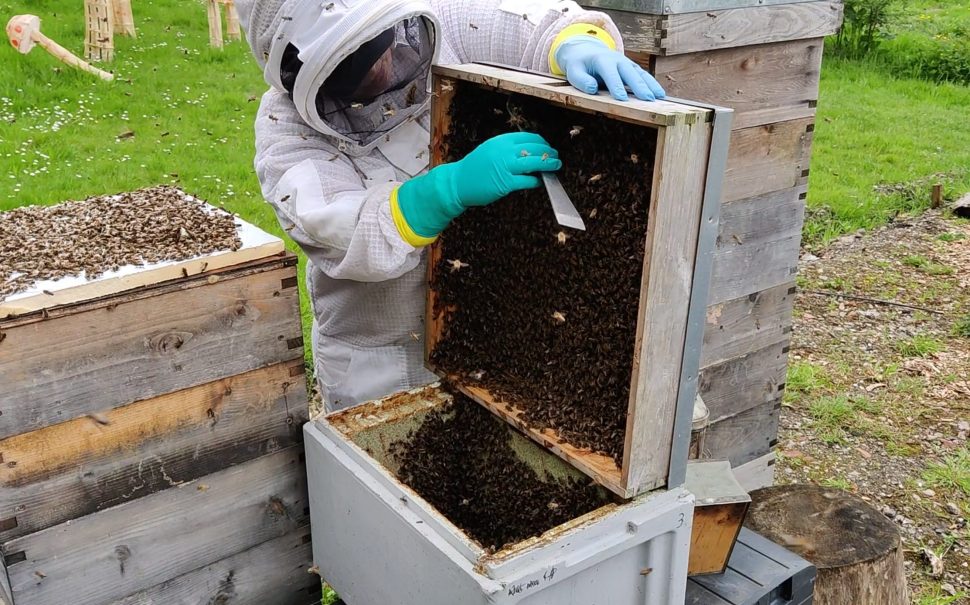It was a normal Tuesday morning for Damson Tregaskis down at Northern Roots urban farm in Oldham. Normal, even with a large buzzing blob of bees hanging ominously from a crate.
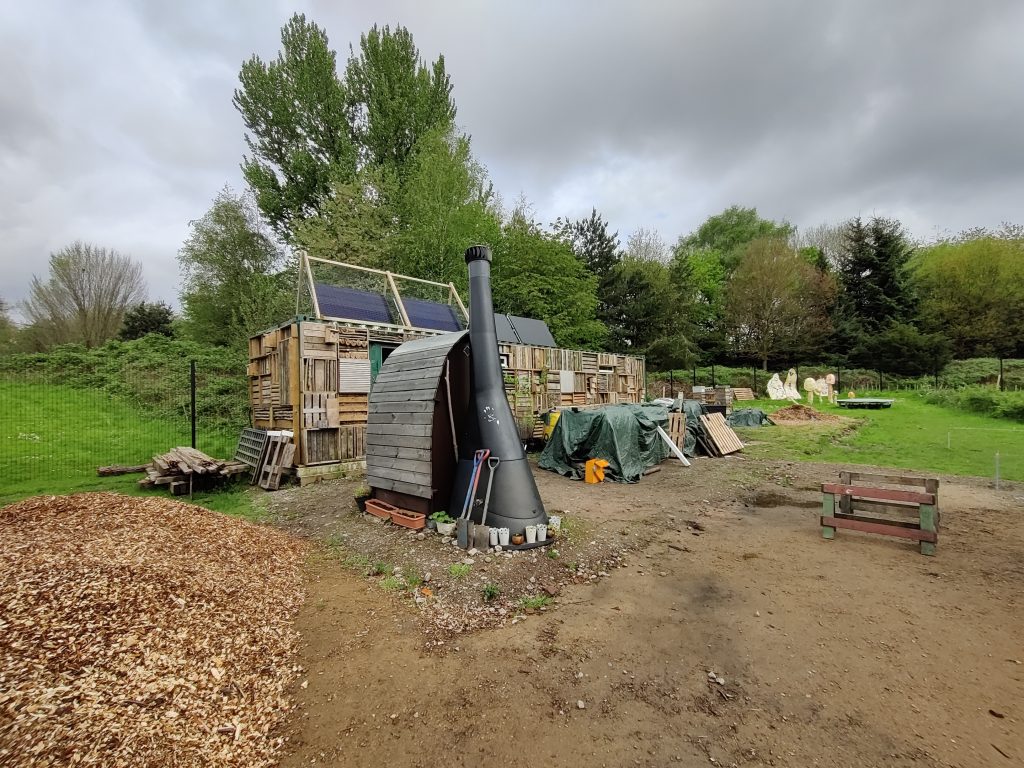
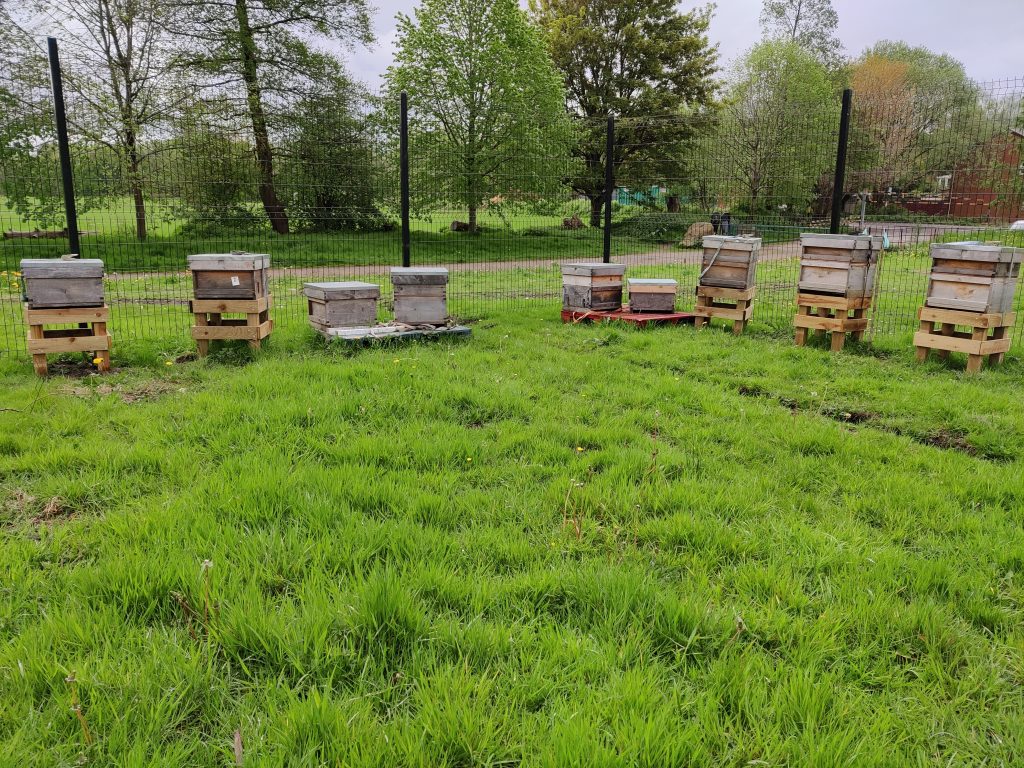
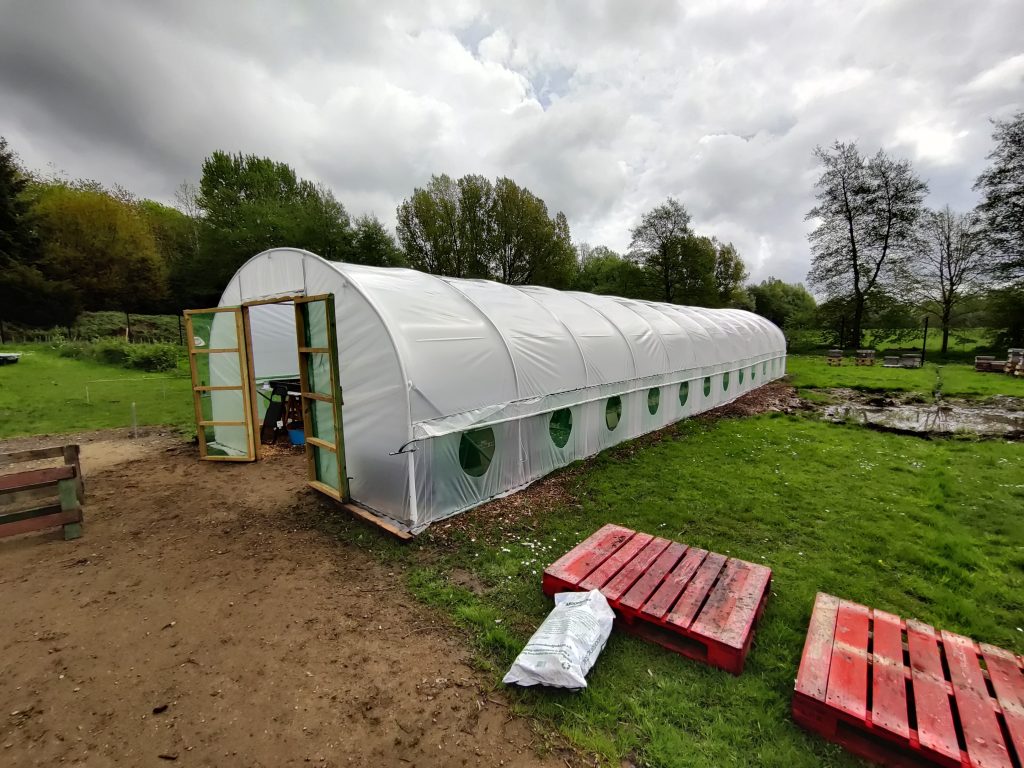
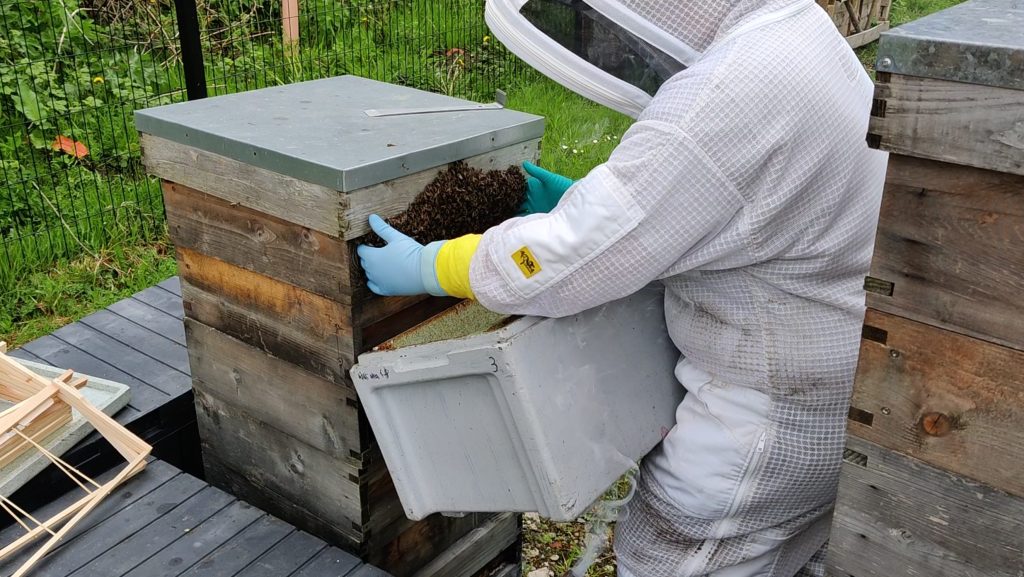
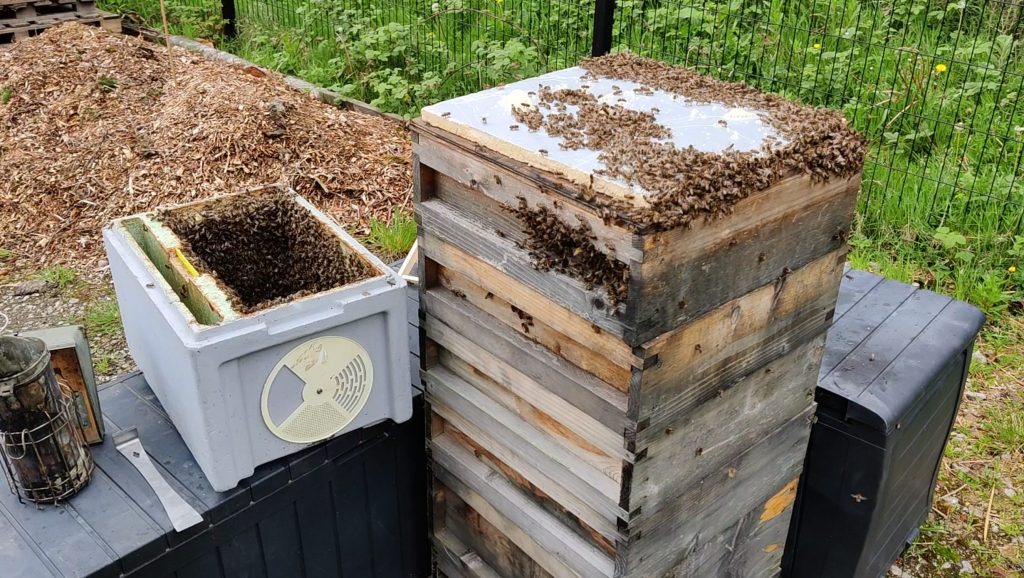
Panic?
Most people certainly would, but not Tregaskis, who calmly put on her suit and gloves and made her way over to the swarm of bees.
“We either shake or scoop the swarm into a new box, we’re aiming to get the queen into that new box,” said the 28-year-old.
“If we get the queen in that box the rest of the bees will follow.”
And if we don’t?
“The rest of the bees will leave the box and go back to wherever the queen is,” she said.
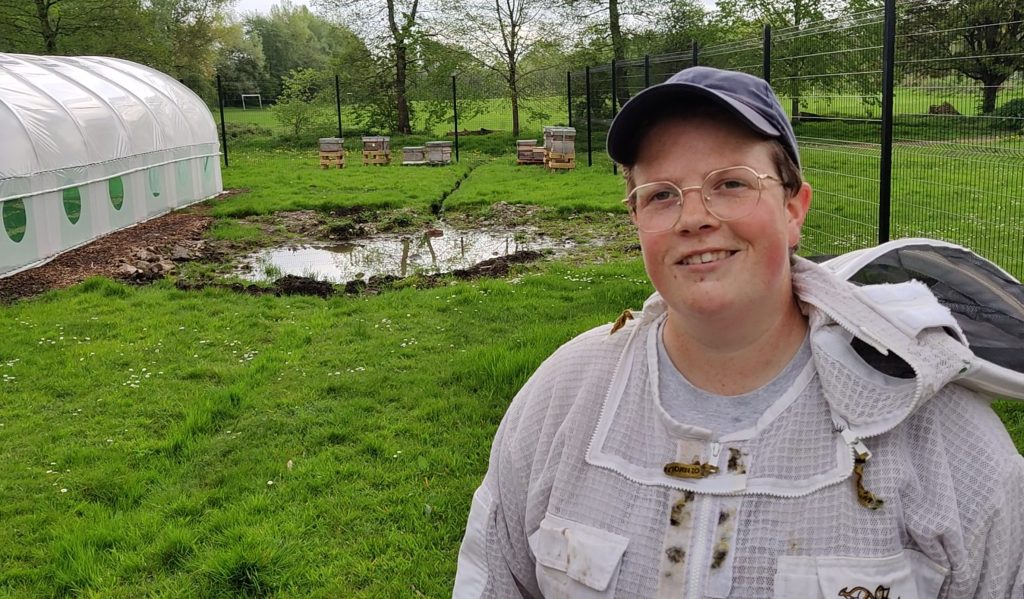
Tregaskis runs a commercial beekeeping business called Hive5, and around this time of year can be found collecting swarms all over Manchester.
While dealing with them can be dangerous, even with the right tools, she bravely uses her gloved hands for the clean out.
But what is swarming?
Swarming is a natural process that begins around this time of year as the weather begins to heat up, and a new queen is born in a hive – prompting the old one to leave with half the colony.
While it can be considered a problem for many, some keepers use them to populate new hives to be farmed later in the summer.
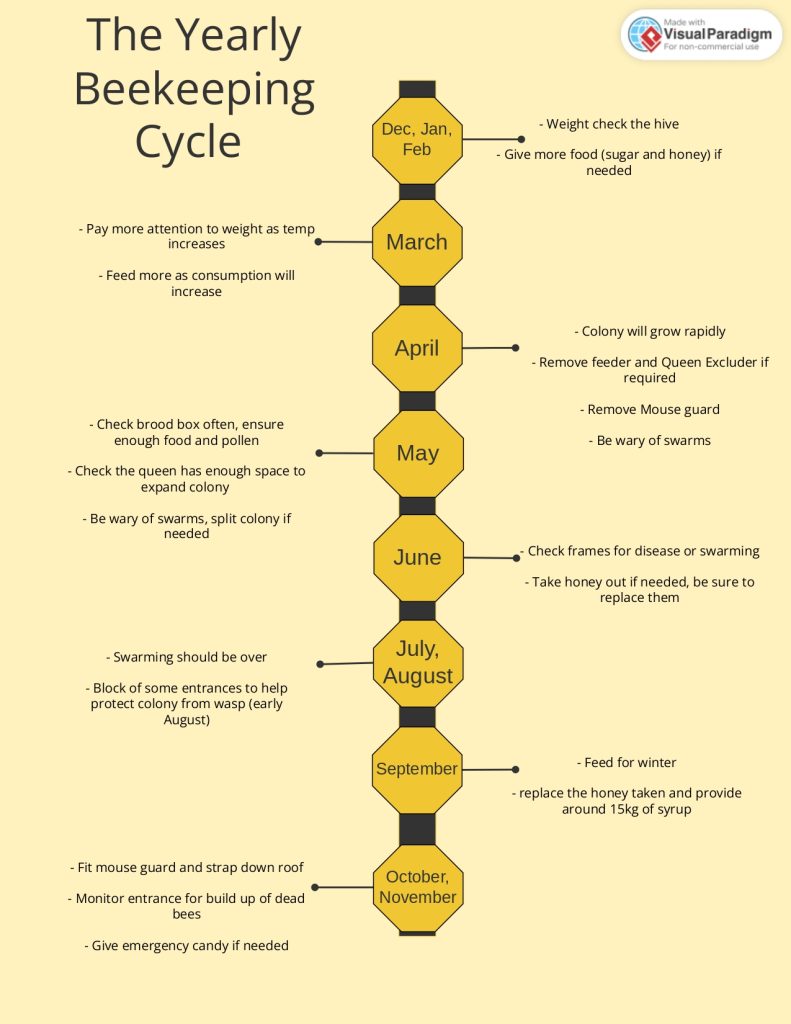
She said: “So at the moment it’s a lot of swarms, trying to avoid swarms, it’s not going very well – we’re a little bit behind this year and they are much more active.
“There were six hives last week and there’s now 10 I think, with the new swarm that we’ve just collected today.”
Swarms can also spread diseases such as American Foulbrood and Chalkbrood to other hives, which is why keepers must step in quickly to remove or rehome them.
Bees for business
And Hive5 isn’t just a standard bee farm.
As a commercial beekeeping enterprise it works with partners all over Greater Manchester to provide services including swarm collection, beekeeping courses and her ‘bees for business’ scheme.
The latter is a rental scheme that allows businesses to improve their keeping credentials, and allows employees at their rented locations to have beekeeping experiences.
Why do this?
“I find this really engages people with their local environment as they often then want to grow more flowering plants to help the honeybees,” she said.
“Hives in urban settings tend to do better than hives in rural settings as people plant their gardens to have flowers throughout the year.
“There are some exceptions to this, especially in regards to overpopulating – however in Manchester this isn’t much of a problem as we have so much green space and so many gardens around the city”
Hive locations include the Trafford Centre, next to Manchester airport, in Altrincham, the printworks and Northern Roots in Oldham, with Hive5 sure to add many more in future.
Delighted to show @decorrum1 the bees on the roof of @MCRPrintworks this afternoon. What a glorious day for it! #bees #beekeeping #manchesterbee pic.twitter.com/EeOJowrS2U
— Hive5Mcr (@Hive5Manchester) September 23, 2022
Bees for all
But what if you wanted to keep your own hives – is it expensive?
No.
Hives and frames can cost between £300 and £500, a suit would run you upwards of £120, bees can be sourced locally for around £200 and tools and gloves would be under £20.
But why should you do it?
It doesn’t need to be a business, you can just keep them for fun, like Oscar Tuner from Preston.
“I was just interested in how they functioned, in how they divide labour depending on age and the fact they can tell the time,” said the 24-year-old.
“You’ll get a seasonal bee inspection, other than that you don’t face many regulations – I just make sure the neighbours are happy!”
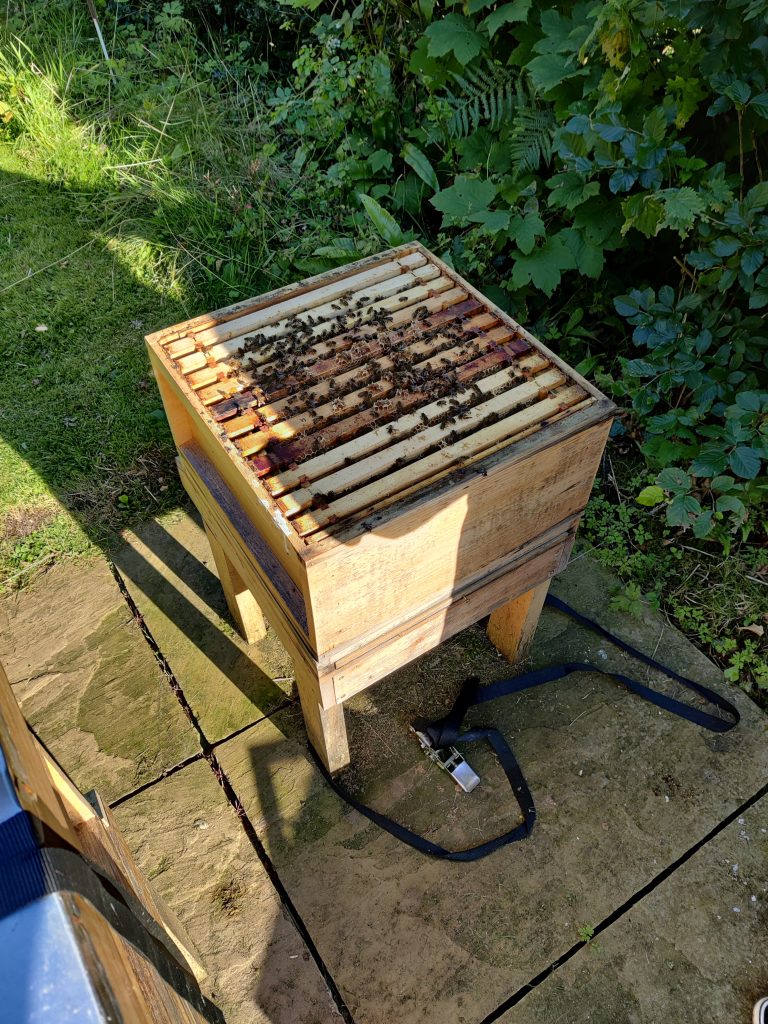
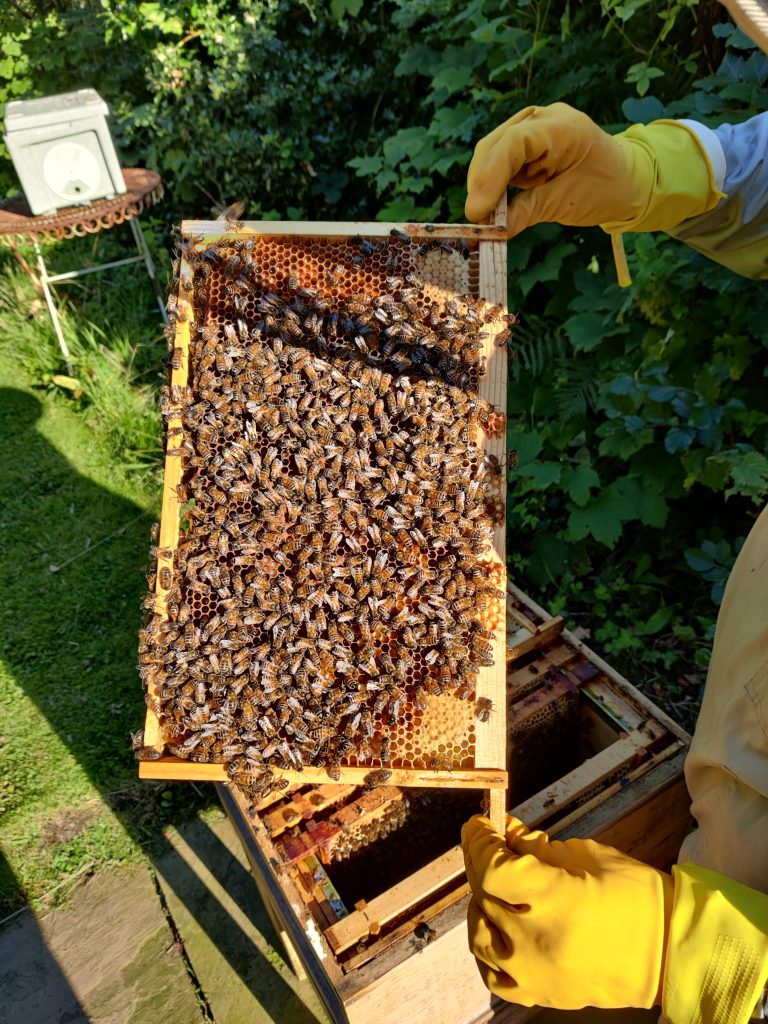
If you’re looking to get started then you can join the British Beekeepers Association (BBKA) for training courses and the opportunity to meet other local beekeepers.
